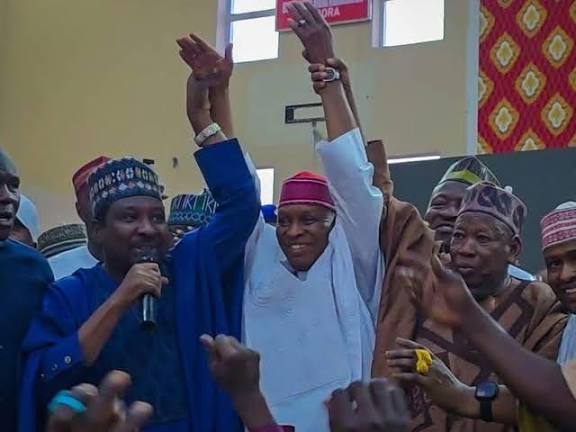By Phrank Shaibu
As Nigeria returned to civilian rule in 1999, the most populous black nation in the world was expanding at an annual national population growth rate of 2.58 per cent, according to UN – Habitat. With a population of 119,695,565 people, Nigeria was a nation waiting for its many challenges to be taken up. Then Cometh the hour, cometh the man!
President Olusegun Obasanjo mounted the saddle to confront urgent social issues that beset the nation at the time, which the government needed to address in order to give the new administration the meaning and direction it eagerly needed in its first four years of democratic rule.
Some of these issues had reached a crisis stage, considering how they negatively impacted on the hapless people of Nigeria. Across the land, there was palpable feeling of doubt about the competence of the government to frontally attack the malaise that had slowly but steadily crept into the nation’s body politic.
There was a sense in which successive military governments appeared to have abandoned any serious efforts towards sustaining the spirit of hope, which President Obasanjo so lucidly and philosophically spoke about and raised in the early days of his administration.
Specifically, the new administration was concerned with security of life and property, the state of infrastructure, the cost of administration, governance, education, utilities, health, conflict management, transport and sports. To be sure, while some of these issues required the attention at the three tiers of government – Federal, State and Local – most are fundamentally and constitutionally within the purview of the Federal Government.
The story of telecoms growth in the country was not any different from the situation in other sectors of the economy. Nigeria’s telecoms industry was compared to the worst in the world; people who were not fortunate and rich enough to own a table phone (and there were less than 350, 000 for the nation’s huge population), went to queue up at NITEL offices across the nation to make or receive international calls. We lived with that situation and lived with so many governments who didn’t know what to do about the sector and truly held the people down to Stone Age practices. Then came Alhaji Atiku Abubakar, the presidential candidate of the People’s Democratic Party (PDP) who was the then Nigeria’s Vice President and Head of the nation’s Economic Management Team.
As Vice President and head of the economic team which included some of the best brains Nigeria offers the world, Atiku showed that it was possible to take the industry to the next level of growth. Under his watch, the nation witnessed first hand the fruits of modern telecommunications technology and its transformative capacity in the life of a nation.
As it is with every good deed, Atiku’s bellwether role in the nation’s telecoms sector has not gone unnoticed. On July 7, 2022, a seasoned journalist, Aaron Ukodie dug up a piece of telecoms history and polished it into the nation’s telecoms walk of fame, to serve a reminder or even a reference material for generations yet unborn.
In his book titled, “Nigeria Drivers of Digital Prosperity,” Ukodie saluted the tenacious spirit and the selfless commitment of Atiku Abubakar which made the rolling out of Global System for Mobile communication (GSM) possible in Nigeria.
Validating the claims that were made in the book, Atiku, who was represented at the book presentation by Barrister Uyi Giwa-Osagie said the evolution of the country’s ICT and telecoms industry, started with the GSM which was launched in August 2001 under his (Atiku’s) supervision, and has since revolutionized the face of ICT in Nigeria.
Atiku said, “In February 2002, I inaugurated a 22-member Telecommunications Sector Reform Implementation Committee, aimed at increasing access to phone services for Nigerians, primarily through the GSM, and further facilitated all necessary licensing for GSM to come into effect in Nigeria. This is an achievement I am entirely proud of and further reinforces my credentials as a digitally inclined leader, aware of revolutions that need to take place for our country to move forward and reach her full potential.”
Speaking further at the event, Atiku gave a hint of the shape of things to come. He enthused thus: “As a leader, I have seen firsthand the significant impact digital technology creates across the different sectors of our economy, and the endless opportunities that remain untapped. On this continuous journey, I feel a responsibility to continue to support Nigeria and the young people of Nigeria, on its digitization agenda, and this forms a core part of my campaign promise and delivery to the nation, in my current quest to be the next President of the Federal Republic of Nigeria, come May 29, 2023.”
There is no gainsaying the fact that track records are important. They equip the initiator of a process a clear understanding of what needs to be done to consolidate on the foundation that has already been laid.
For emphasis, Atiku’s key role in the development of the nation’s telecoms sector has left landmarks achievements that are difficult to ignore. Working with the best brains in the sector, led by Ernest Ndukwe whose appointment Atiku facilitated as the Executive Vice Chairman and CEO of Nigerian Communications Commission (NCC), the reforms saw the opening up of the sector by the establishment of the National Communication Commission (NCC)- which was established to oversee the telecommunication sector and regulate the operation of General Mobile Services (GSM) Operators.
The GSM operators licensed by NCC include Airtel, MTN, Glo, 9mobile as the major service providers alongside other service providers such Vodafone, spectranet, itel which are the go-to platforms for internet service.
The reforms in the telecommunications sector have had concomitant positive impact on job and wealth creation. In the last two decades, the sector has provided millions of jobs to teeming youths and the share of Nigeria’s telecoms sector in total GDP has stabilized in the over the years as attested to by the National Bureau of Statistics (NBS) report.
In the First Quarter (Q1) of 2017, the telecoms sector contributed N1.452trillion to the GDP, i.e., 9.16 % indicating a growth in the sector.
There has also been an increase in Foreign Direct Investment (FDI)-as most of the GSM providers are foreign investors who brought in their funds to invest in the telecom sector. This drive will help increase the country’s FDI with its advantage on the inflow of foreign currency and positive impact on the value of the Nigerian currency (naira). According to the statistics, capital flow (foreign direct investment) into the Nigerian telecoms industry in 2021 was approximately $417 billion as against $942 million it was in 2019.
That’s not all. The sector has impacted the nation’s revenue drive through payment of taxes. According to the Nigerian Communications Commission, the combined revenue of operators in the GSM, Fixed Wired, and Internet Service Providers was N3.21tn in 2021. This means that government implement rakes in N160.46bn from its five per cent excise duty on telecom services.
Not to be missed is the establishment of Payment Services Banks (PSB’S) using the major GSM providers to drive the development of the SME’s and help the economy to grow. It is furtherance of this initiative that the Central Bank of Nigeria recently licensed 5 PSB’s to operate as mobile service banks to deepen the financial services provision in the country and help boost the SME growth. This would not have been possible without the opening up of the GSM occasioned by the reform of the telecommunication sector.
Other benefits of the reform of the telecommunication sector is that the basic national data required for the country is made possible, as the GSM operators register and capture all users which the Federal Government can leverage as baseline data for integration with other data base to establish national data base.
Lastly, the reform of the sector has made it easier for the Nigerian populace to engage in business through various channels such as conducting business through the mobile phones from anywhere around the world, use of telephone data services to advertise and sells product conveniently. In one phrase, it has impacted positively the ease of doing business.
All said, it is easy to see why Atiku’s emergence as Nigeria’s next president will not ONLY arrest brain drain from Nigeria but also ensure that Nigerians who face all manner of hazards – racial violence, unemployment and dehumanization abroad, all in the name of searching for greener pasture return home to help build their own country. This is a task that is doable, since according to John C. Maxwell, “everything rises and falls on leadership.”

Shaibu is Special Assistant to Atiku Abubakar on Public Communication




